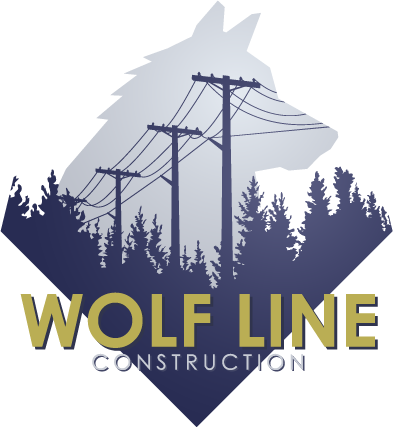With the help of a vigilant and adaptive fleet manager, the company is always looking for smoother ways to operate.
A fleet manager’s job is never easy, but it’s certainly made a little more efficient thanks to emerging technology like digitized documents and fleet management solutions.
Donte Allen of Wolf Line Construction (WLC) in North Charleston, South Carolina, is a firm believer in taking a hands-on approach to learning about the tech tools available and adapting them to make operations smoother.
Safely Standardizing
Wolf Line Construction specializes in installing fiber optics in the power space using qualified electrical workers. The company is committed to safely providing the highest quality of services, while teaming with customers to deliver cost-effective solutions to support their needs.
The company has a fleet total of 91 vehicles. This includes 49 bucket trucks, two digger derricks, 21 pickup trucks, five SUVs, and 14 Kubota side-by-sides.
The bucket trucks are used to install fiber hardware on utility poles, and the digger derrick is used for certain jobs that require anchors to support the poles. Pickup trucks are used to tow material and equipment to job sites, such as the Kubota side-by-sides. They are also used to drive fiber routes out before other employees come through with bucket trucks. SUVs are mainly used by office personnel to get back and forth between various sites, and crews use the Kubotas to pull the fiber from pole to pole.
Most of the company’s vehicles are four-wheel drive, which decreases the odds of vehicles getting stuck and waiting for a tow truck to come winch it out or having employees try to pull it out themselves without approval.
They also use the Verizon Connect fleet management solution, which includes dash cams and asset trackers that keep safety on everyone’s mind. Videos captured can lead to coaching and/or disciplinary action for a driver, which gives the company the chance to use that same video to coach other drivers, too.
Finally, standardizing the fleet by sticking with the same brand makes operations more efficient. Most of the trucks have the same parts, so if something happens to a unit, sometimes mechanics can get the part on order before it’s even brought into the shop.
“On the safety side, these brands have been around for a long time and are more reputable. If anything is unsafe, they issue recalls, allowing us to get issues resolved at no cost through the warranty. Also, if you develop a good relationship with that brand, a lot of times they can dig into any other issues you may be having and likely will be covered by warranty,” Allen explained.
No Challenge Goes Unsolved
Driver vehicle inspection reports (DVIRs) which must be filled out every day before anyone drives a company vehicle proved to be a bit of a challenge when they had to be filled out on paper. These forms would take a while to be sent back to the office for processing. Therefore, if an issue was reported, the fleet manager wouldn’t see it right away. To combat this, the company adapted a platform to digitize all of its paperwork — not just on the fleet side, but also the safety side of things.
“Now, as soon as someone submits a DVIR, I can look at the issue, prioritize, and address it in real-time. With this same system, we can go back and look at any previous DVIRs easily because they are all stored in the cloud,” Allen said.
Thanks to the platform, Allen can now easily do a digital annual fleet audit. Instead of having to print out a whole binder full of paper copies, he can do everything from his phone.
Another issue the company has faced is problems with air filters, which were causing its units to go down. Since its bucket trucks have an engine and the PTO converts the engine power to the hydraulic pump to allow crews to work up and down the pole, sometimes the dirty, clogged air filters would prevent the PTO from working properly.
Allen said they originally had the air filters set to mileage-based maintenance as stated in the maintenance manual; however, some job sites are dustier than others.
Now, the company checks the filters every three months and buys them in bulk to keep extras on hand.
“This is another benefit of buying from the same brand — for all of our bucket trucks, it was only four different part numbers for the air filters,” he stated.
The company has also had an increase in backing incidents since a lot of their construction work occurs off-road in the woods. Sometimes drivers will back up without a spotter, bump into a tree, and dent the truck.
The company has now implemented a policy requiring drivers to have a spotter whenever they back up, and is also piloting a rear sensor on the next bucket truck that will be delivered that will beep when drivers come close to hitting something.
Benefitting from Fleet Management
Implementing the Verizon Connect Reveal fleet management solution has increased overall management efficiency by enabling WLC to know where any piece of equipment is in real-time.
“An added benefit is the trackers are discreet. If the equipment is stolen, we’re going to be able to find it,” he said.
On top of that, the hardcore proof provided by Verizon Connect integrated video dashcams prevents the back and forth that comes with “he-said, she-said” situations in the event of an accident.
The dashcams can be set so anytime a harsh driving event happens, such as a hard brake or hard deceleration, it automatically saves 40 seconds of a video and sends it to a designated email address or addresses. This way, a fleet manager and upper management can immediately click on and view it without having to search through a ton of video files. This is an easy way to check for distracted driving and seat belts.
When it comes to picking the right fleet management solution for your fleet, Allen recommended taking your time and doing your research because there are a lot of different companies out there, but perhaps only one or two that will provide what’s best for your unique fleet.
“Always be thinking about future needs. Find out if the proposed solution will be able to accommodate changes such as growth or additional features. For us, for example, before we signed up with Verizon Connect, they didn’t have a dashcam solution at the time. That was one of our questions for them. They stated they would implement dashcams in the future, and they did,” he explained.
Most of the company’s vehicles are four-wheel drive, which decreases the odds of vehicles getting stuck and waiting for a tow truck to come winch it out or having employees try to pull it out themselves without approval.
Surviving and Thriving Through COVID-19
Issues with microchip availability and increasing steel prices have affected bucket truck production, which is about 50% of Wolf Line Construction’s fleet. Its first new truck order delivery is slated for April 2022, and it had to lock-in that order back in the third quarter of 2021. Allen plans to place an order for 2023 around the same time frame this year as well to beat any further hiccups caused by pandemic supply chain issues.
On the repair side of things, the dealerships the fleet works with only have a select few mechanics that can work on its bucket trucks. If that group calls out sick with COVID-19 and a unit is there, Wolf Line Construction might have to plan for extra downtime.
“You have to have patience, and that’s not easy, but you have to understand they are dealing with a lot as well,” he said.
When it comes to facing unforeseen challenges, Allen suggested always thinking about and looking for possible solutions to problems before they occur.
For example, if you work with one dealership that’s always backed up, look into finding a different dealership that’s close and work with multiple dealerships when possible. If it’s not warranty work that has to be done by a dealership, partner with a local shop that can service your trucks and help you in a pinch for small things like oil and filter changes.
“It’s also good to have a mobile mechanic on hand, because they’re usually flexible and can do things before hours, after hours, and even on weekends. This helps decrease downtime for those units,” Allen noted.
Never a Dull Day
Allen got started with Wolf Line Construction about four and a half years ago as a project engineer intern and then came on full-time. From there, he slowly took over fleet and helped get everything rolling by implementing maintenance plans, cost tracking, fleet management, and more.
“Fleet interested me ever since I started working with it. The day-to-day is good, because every day is different. Some days everything goes smoothly, and you go down your to-do list with ease. Other days, multiple units go down, trucks get stuck and need a winch out, your phone’s ringing constantly, and your to-do list for that day never gets touched. I enjoy problem solving and putting out fires on a daily basis; it keeps you on your toes,” he explained.





